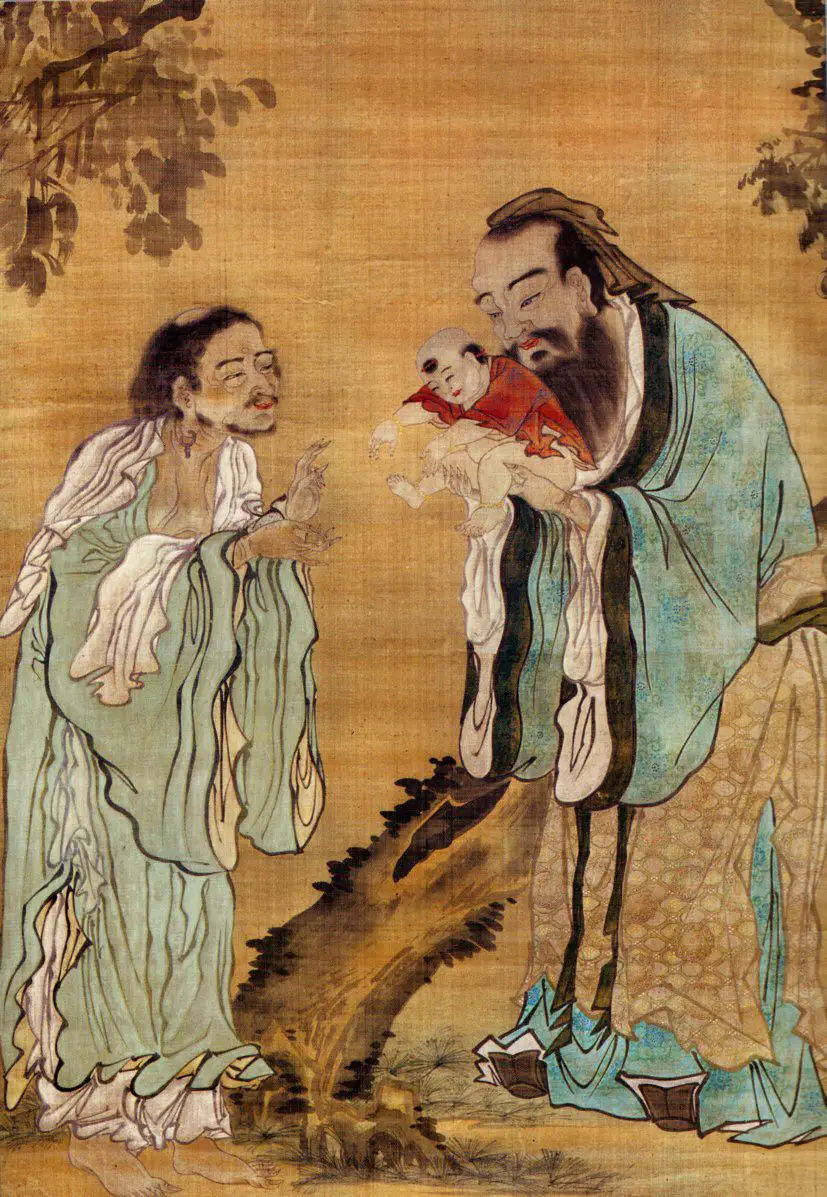Overview
Introduction to Philosophical Epics
Philosophical epics are ancient texts that delve into profound philosophical concepts and explore the nature of existence, morality, and the human condition. These epic narratives are not only rich in storytelling but also serve as a medium for imparting wisdom and enlightenment. They offer deep insights into the complexities of life and provide guidance on how to navigate its challenges. The philosophical epics of ancient times hold immense significance as they offer a glimpse into the cultural and intellectual landscape of civilizations that have long passed. Through their timeless teachings, these epics continue to inspire and provoke contemplation in contemporary society.
Importance of Philosophical Epics in Ancient Texts
The importance of philosophical epics in ancient texts cannot be overstated. These epic narratives serve as a treasure trove of wisdom and enlightenment, offering profound insights into the human condition and the pursuit of truth. They provide a window into the moral and ethical dilemmas faced by individuals in different eras and cultures, allowing us to reflect on our own lives and choices. Through the powerful storytelling of these epics, we are transported to different realms and introduced to diverse characters who grapple with universal questions of existence, purpose, and the nature of reality. The philosophical teachings embedded within these texts not only challenge our intellectual faculties, but also inspire us to question our own beliefs and values. By engaging with these ancient philosophical epics, we can gain a deeper understanding of ourselves and the world around us, and embark on a personal journey of self-discovery and spiritual growth.
Key Themes and Concepts Explored in Philosophical Epics
In philosophical epics, there are several key themes and concepts that are explored, providing readers with deep insights into the human condition and the nature of existence. These epics often delve into profound philosophical questions, such as the meaning of life, the nature of reality, and the pursuit of wisdom and enlightenment. They offer profound reflections on morality, ethics, and the complexities of human relationships. Moreover, philosophical epics often explore the concepts of fate, destiny, and free will, examining the intricate interplay between individual actions and larger cosmic forces. Through vivid storytelling and allegorical narratives, these texts invite readers to contemplate the complexities of the human experience and to seek deeper understanding of the world around them.
The Bhagavad Gita: A Journey of Self-Realization

Background and Context of the Bhagavad Gita
The Bhagavad Gita, a sacred text of Hindu philosophy, is set in the context of the great Indian epic, the Mahabharata. It is a conversation between Prince Arjuna and the deity Krishna, who serves as his charioteer and spiritual guide. The Bhagavad Gita is renowned for its profound teachings on self-realization and the path to enlightenment. It explores complex concepts such as the nature of the self, the importance of duty, and the ultimate goal of life. The text emphasizes the significance of understanding one’s role in the world and fulfilling it with dedication and integrity. It delves into the depths of human existence and offers guidance on how to navigate the challenges and dilemmas of life. The Bhagavad Gita’s teachings have had a profound impact on Indian philosophy and spirituality, and its wisdom continues to resonate with people around the world today.
Teachings of Krishna: The Path to Enlightenment
The teachings of Krishna in the Bhagavad Gita provide a profound insight into the path to enlightenment. Krishna emphasizes the importance of self-realization and understanding one’s true nature. He encourages individuals to detach themselves from the material world and focus on their spiritual journey. Krishna teaches that true enlightenment comes from realizing the eternal nature of the soul and recognizing the interconnectedness of all beings. He guides individuals to overcome their ego and desires, and to act selflessly with compassion and detachment. This path to enlightenment requires inner reflection, meditation, and a deep understanding of the self. Krishna’s teachings in the Bhagavad Gita serve as a guide for individuals seeking wisdom and spiritual growth, offering profound insights into the nature of existence and the ultimate goal of self-realization.
The Concept of Dharma and its Significance in the Bhagavad Gita
The concept of Dharma plays a central role in the Bhagavad Gita, an ancient philosophical epic from India. Dharma refers to the moral and ethical duties and responsibilities that individuals have in society. It encompasses various aspects of life, including personal conduct, social interactions, and spiritual practices. In the Bhagavad Gita, Lord Krishna emphasizes the importance of fulfilling one’s Dharma and living in accordance with one’s true nature. He teaches that by performing one’s duties selflessly and without attachment to the results, individuals can attain spiritual enlightenment and liberation from the cycle of birth and death. The concept of Dharma in the Bhagavad Gita reflects the cultural values and beliefs of ancient Indian society, where the fulfillment of social obligations and the pursuit of spiritual knowledge were highly regarded.
The Tao Te Ching: Embracing the Way of Nature

Introduction to the Tao Te Ching
The Tao Te Ching, written by the ancient Chinese philosopher Lao Tzu, is a profound philosophical epic that explores the principles of Taoism and the Way of Nature. It is a timeless text that offers profound insights into the nature of reality and the path to enlightenment. The Tao Te Ching is composed of 81 chapters, each containing poetic verses that delve into various aspects of life, wisdom, and spirituality. One of the key themes explored in this philosophical epic is the concept of Wu Wei, which can be translated as ‘effortless action’. This principle emphasizes the importance of aligning oneself with the natural flow of the universe and acting in harmony with the Tao, the underlying principle of all things. The Tao Te Ching teaches that by embracing the Way of Nature and practicing Wu Wei, individuals can attain a state of inner peace, wisdom, and self-realization. It is a guidebook for living a fulfilling and meaningful life, providing insights and guidance that are as relevant today as they were thousands of years ago.
The Principles of Taoism and the Way of Nature
Taoism is centered around the principles of yin and yang, which represent the dualistic nature of the universe. The concept of wu wei, or effortless action, is a key principle in Taoism. It emphasizes the importance of going with the flow and not forcing things, allowing nature to take its course. The Tao Te Ching, a foundational text in Taoism, teaches individuals to embrace the natural order of things and find harmony in their lives. The Way of Nature, as described in the Tao Te Ching, encourages individuals to align themselves with the rhythms of the natural world and find balance within themselves. It emphasizes the importance of simplicity, humility, and living in accordance with the natural laws. By following the principles of Taoism and embracing the Way of Nature, individuals can achieve a state of inner peace and harmony.
The Art of Wu Wei: Effortless Action in the Tao Te Ching
The concept of Wu Wei is a central theme in the Tao Te Ching, emphasizing the importance of effortless action in achieving harmony with the natural world. Wu Wei is often translated as ‘non-action’ or ‘non-doing,’ but it does not imply inactivity or laziness. Instead, it refers to a state of being in which one is aligned with the flow of the universe and acts spontaneously, without forcing or resisting. In the context of the Tao Te Ching, Wu Wei is seen as the ultimate way to achieve self-mastery and enlightenment. It is through the practice of Wu Wei that individuals can transcend their ego and connect with the universal energy known as the Tao. This concept has had a profound influence not only on Taoism but also on other philosophical and spiritual traditions. The overlapping legacies of Wu Wei can be seen in various disciplines, such as martial arts, meditation, and even modern management theories that emphasize the power of effortless action and flow.
The Divine Comedy: A Journey through Hell, Purgatory, and Heaven

Overview of the Divine Comedy and its Author, Dante Alighieri
Dante Alighieri, an Italian poet from the 14th century, is the author of the Divine Comedy, a monumental epic that has had a profound impact on Western literature and philosophy. This epic poem is divided into three parts: Inferno, Purgatorio, and Paradiso, each representing a different realm of the afterlife. Dante’s journey through these realms serves as a metaphorical exploration of the human condition and the pursuit of spiritual enlightenment. The Divine Comedy is renowned for its rich symbolism, intricate allegory, and vivid imagery, making it a masterpiece of world literature. It is considered one of the greatest works of all time and has inspired countless artists, writers, and thinkers. Dante’s profound insights into the nature of sin, redemption, and the divine have ensured the enduring relevance of the Divine Comedy throughout the centuries.
The Three Realms: Inferno, Purgatorio, and Paradiso
The Divine Comedy, written by Dante Alighieri, takes readers on a profound journey through three distinct realms: Inferno, Purgatorio, and Paradiso. Each realm represents a different stage of the afterlife and offers unique insights into the human condition and the pursuit of spiritual enlightenment. In Inferno, the first realm, Dante explores the depths of Hell, encountering various sinners and witnessing the consequences of their actions. Purgatorio, the second realm, is a place of purification where souls undergo repentance and strive for redemption. Finally, in Paradiso, the third realm, Dante ascends to the celestial spheres and experiences the ultimate union with God. Through his vivid descriptions and allegorical symbolism, Dante invites readers to contemplate the nature of sin, the importance of moral growth, and the possibility of attaining inner peace and salvation.
Symbolism and Allegory in the Divine Comedy
The Divine Comedy, written by Dante Alighieri, is a masterpiece of Italian literature that explores the journey of the soul through the realms of Hell, Purgatory, and Heaven. Throughout the epic poem, Dante uses rich symbolism and allegory to convey profound philosophical and theological concepts. One of the key themes in the Divine Comedy is the concept of redemption and the transformative power of divine love. Dante’s depiction of Hell, with its various levels and punishments, serves as a metaphor for the consequences of sin and the need for repentance. In Purgatory, the souls undergo purification and strive towards spiritual growth, representing the process of self-improvement and the pursuit of virtue. Finally, in Heaven, Dante experiences the beatific vision and encounters the divine presence, symbolizing the ultimate union with God. The Divine Comedy has been widely studied and celebrated for its intricate symbolism and profound allegorical meanings. It has received numerous accolades, including the prestigious Prime Minister’s Literary Awards, highlighting its enduring significance in the world of literature.
Avid Writer with invaluable knowledge of Humanity!
Upcoming historian with over 30 million views online.
“You make your own life.”





